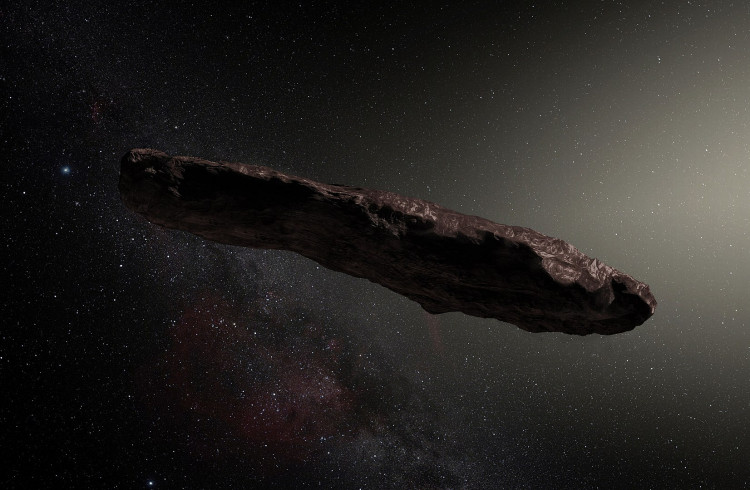Maybe a clear sign that an alien civilization has visited us won't be in the form of a giant saucer in the sky, but instead some kind of alien trash. This is what Harvard's chair of Department of Astronomy Avi Loeb believes.
Loeb's upcoming book, "Extraterrestrial: The First Sign of Intelligent Life Beyond Earth," discusses this argument. According to the physicist, an interstellar object that has been boggling researchers for years is not just some ordinary space rock but actually a piece of alien tech.
The object in question migrated to our solar system from the direction of Vega, a nearby star 25 light-years distant, and intercepted the orbital plane of our solar system on Sept. 6, 2017.
On September 9, its course took it closer to the sun. It blasted at around 58,900 miles per hour beyond Venus' orbital distance at the end of September, and then, on Oct. 7, it flew past Earth before "moving swiftly to the Pegasus constellation and the blackness beyond," Loeb writes in the book.
The object was first spotted by the Hawaii Observatory housing the Panoramic Survey Telescope and the Rapid Response System (Pan-STARRS)-the Earth's highest definition telescope.
Scientists called the space object 'Oumuamua, which is Hawaiian for "scout."
As space travelers go, it was relatively small, maybe 100 yards long, but it was a huge deal in the science world.
First of all, it was the first interstellar object ever found in our solar system. Judging by the direction of the meteor, observers inferred that it was not constrained by gravity of the sun-which suggested that it was only passing through it.
At first, scientists thought it was a regular asteroid. But Loeb said the presumption ran the risk of allowing "the familiar to define what we might discover."
"What would happen if a caveman saw a cellphone?" Loeb asked. "He's seen rocks all his life, and he would have thought it was just a shiny rock."
Soon Loeb opened his eyes to another possibility: it was not an asteroid, but a leftover tech from an alien civilization.
Until recently, our instruments have not been sensitive enough to pick up visitors of this nature. But Loeb said that science will eventually make it easier to find further space travelers, and the only way to settle the question of 'Oumuamua is if a similar entity is spotted and examined more closely with a probe.
Loeb said his book should motivate people to collect more data about objects that look odd from Earth's point of view.






